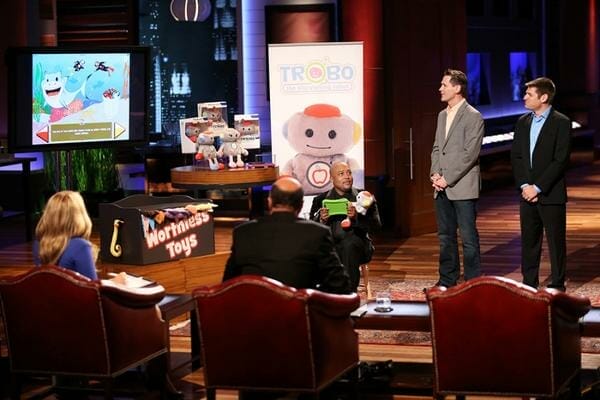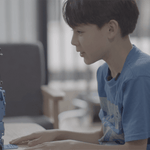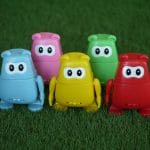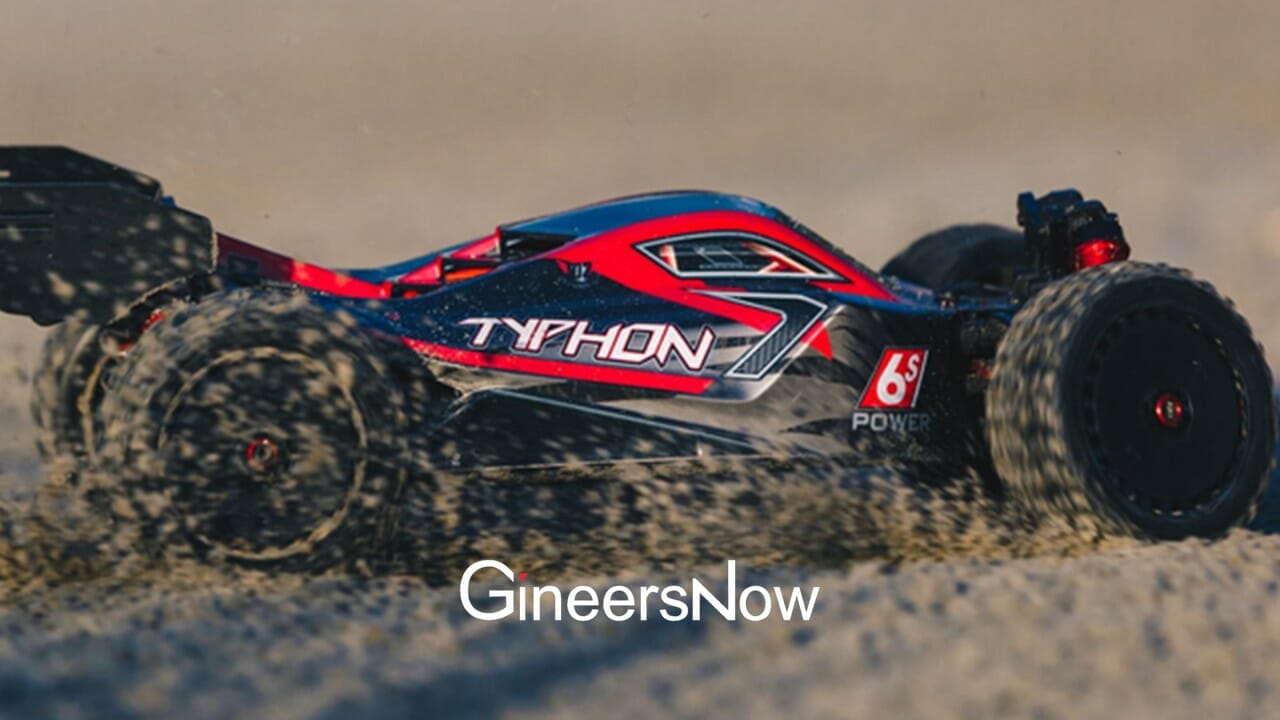Most fathers just take the responsibilities of providing for their family members while taking care of them. Nothing more, nothing less. They work hard and earn for the best interests of the mother and the kids. But there are just those who want to take it further – just like Chris Harden and Jeremy Scheinberg.
The two are family guys who happen to be engineers. Chris is an electrical engineering graduate from Auburn University while Jeremy is a controls engineering alum at Penn.
Out of their desire to provide their children with toys that stimulate young minds, they used their expertise in engineering and founded a toy company called TROBO. There, Chief Product Officer Chris and Chief Engineering Officer Jeremy developed connected plush toys, named after the company, which could teach kids about science, technology, engineering and math. Through interactive stories, TROBOs serve as educational companions for kids age 2 to 5.
We interviewed Chris and Jeremy through e-mail to discover how they put up the company, their challenges along the way, their goals and future innovations, and their product’s impact, among others.
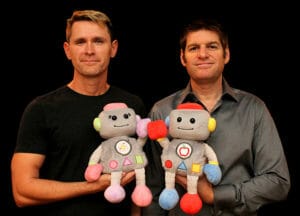
PRIOR EXPERIENCE
How many years have you been working in your industry?
Chris: I’ve spent most of my career as a Software Engineer. I’m now about 18 years into my career. I’ve worked for a variety of industries – theme parks, mobile and embedded devices, and video games.
Jeremy: I’ve spent most of my career in the theme park industry working for Disney, Universal, etc… I’m now about 19 years into my career.
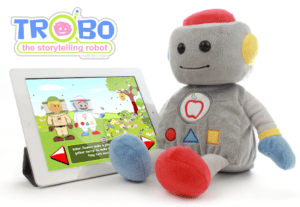
THE COMPANY
Describe your company’s structure, brief history, board or advisers.
TROBO has two founders, Chris Harden and Jeremy Scheinberg. We have a series of contractors hired to perform software and content development. We use contract manufacturing for the product manufacturing. Our advisors are previous co-founders, investors, lawyers, and toy industry veterans.
How big is your company?
TROBO is somewhere around 7-9 people on average, and sometimes this grows to 12 or so.
Describe your mission, vision and values.
Our mission is to design innovative products and experiences that inspire children to learn about the science, technology, engineering & math (STEM) in the world around them. It is our vision to inspire children to make things that will change the world. Our company is anchored in these values: education, quality, commitment, work/ life balance, and non-violence.
Where is this company headed?
In 10 to 20 years, we want to have made TROBO an icon for early childhood STEM education. Strategically, this requires growth of not only the product SKUs but creation of more content.
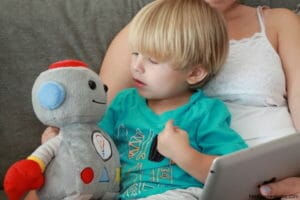
TOYS OF THE PAST MEET THE PRESENT
How will today’s toys make a difference as compared to the ones from the past?
Until recently technology was just too expensive to provide a value that families could afford in the toy market, so most toys have tech from the 80’s and 90’s. Now we are starting to see the benefits of IoT devices used in toys. The more connected, the more access to powerful systems that can bring more fun.
Which toys from your childhood made an impact on you while growing up?
Chris: For me, it’s Mario Brothers on the Nintendo NES Classic.
Jeremy: In my case, it’s visiting theme parks while growing up in Miami.
What do you think is the future of the toy industries?
It will continue to get more technically savvy as an IoT (Internet of Things) industry.
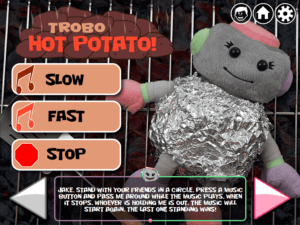
THE PRODUCT
What’s the inspiration behind your products? How did you come up with these ideas?
Our children are our inspiration. Jeremy and Chris are both fathers. Jeremy has a 7-year-old girl and 5-year-old boy. Chris has a nearly 5-year- old boy and a 4-month-old daughter. We are engineers who see our country declining in the number of graduates from STEM programs. That drove us to help solve what is a macro problem for the country. On a micro level, as parents we didn’t see many compelling, STEM educational, non-violent products out there for our children’s age ranges (4 and 6 at the time of founding).
Which group is your target market and why?
Children age 2 to 5, who have access to mobile technology. TROBO is a connected plush toy. Plush has a fairly tight window of age where children are interested in it. Older children, up to about 6 or so, are interested in our STEM content.
What are the future innovations that you or your company is pursuing?
We are pursuing further innovations in the embedded hardware and more value in the apps we make.
Do you think your product has made an impact on your costumers and in your industry?
Yes. Our customers tell us regularly how TROBO is their children’s best friend and they relay stories about how the child recalls some STEM knowledge learned while playing with TROBO.
Where do you see your products heading 10 years from now?
The current content is compelling to younger children, and we are developing content for their older siblings. Once the content library and character stories are strong enough, we also have plans to license the brand and characters much like a Disney or Dreamworks. We’ll continue electronic story development for our mobile app, and we’ll also produce more hard books and products for our customers to enjoy. As far as the connected plush are concerned, the technological landscape for a connected toys should be immensely powerful compared to now, and we plan to absorb what value we can as we iterate on hardware.
What makes your toys different from your competitors?
We were the first to innovate in the market with a connected STEM toy, built by engineers and fathers who inherently understand our target customers. Our dedication to STEM content that is nonviolent continues to set us apart from competitors who drift towards standard, more generic play activities such as cooking and play-fighting.
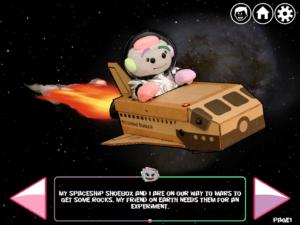
THE CHALLENGES & SOLUTIONS
What challenges did your companies face while developing your product?
Competing with entrenched companies like Hasbro, Mattel, SpinMaster, etc.is tough as they have enormous budgets compared to us as a startup. We also had some problems getting our first run of units FCC tested which added delays to our internal delivery goals. However, having years of experience in manufacturing, we knew things may be delayed and thereby committed to a yearlong development cycle for our Kickstarter customers. That was the right choice, as we ended up delivering on that commitment about a month early.
How did your company overcome these challenges?
On competing with big companies, that is really just about finding your niche that they don’t address. On production, we’re very big on solid communications and planning for delays in things we can’t control, especially with new manufacturers and development teams. So we over-communicated and padded estimates provided by our vendors. That’s pretty standard project management practice.
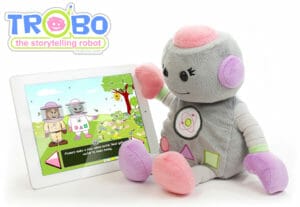
ADVICE TO THE YOUNG ENGINEERS
Read or listen to “Disciplined Entrepreneurship” by Bill Aulet. We’ve made a lot of mistakes and learned a lot of what he describes, the hard way. After that, read or listen to as many Marketing, Sales, and other Entrepreneurship books as you can; always be listening to a new book. Start trying to build a business as early as you can possibly afford to, while your expenses are low. Doing so allows you to fail cheaply, which allows you to learn cheaply. Network like a machine, because successful startups are made up of teams, not individuals. Specifically your team is best positioned when you have someone who can technically execute, someone who is the subject matter expert, someone who is financially or operationally savvy, and someone who can sell your product/service. If you are missing one, network some more.
Launch a business around something you are absolutely passionate about. You’ll be doing so much of it, that you will rely on your passion to pull you through the hard times.


